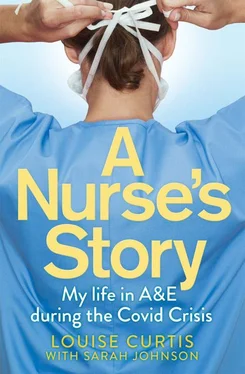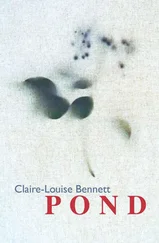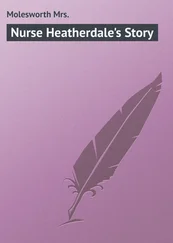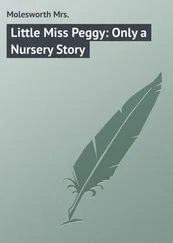He had a blood pressure and a heart rate, indicating that he was stable for now, but we were yet to discover the extent of his injuries. He did not look good. As the nurse, I was responsible with another clinician for doing the initial assessment. I looked him over from head to toe documenting what there was to try and fix. I put an oxygen saturations probe on the patient’s finger, a blood pressure cuff around his arm, heart rate monitoring leads on his chest. I cut his clothes off and inserted a cannula while everyone else also got to work.
His heart soon stopped beating and he went into cardiac arrest. The trauma team – made up of senior A&E doctors – ended up cutting his chest open to try and give his heart manual massage with their hands and to stop the bleeding. But it was futile, and he died. I remember thinking: ‘This is shit.’
A&E is a fast-paced environment so there was no time to stop. I had to push my feelings into a box and close the lid so I could go and see the next patient. Sometimes, they can hear what’s going on and they ask me if someone has just died. I often tell them yes because what else can I say?
We also see a lot of people with mental health problems in A&E, which sometimes leaves me feeling utterly powerless. Many are young, my age (I’m now thirty-two) or younger. One case that hit me the hardest, however, was an elderly woman who had attempted suicide. She had overdosed but then woken up hours later distressed and confused. She called 999, but remembered while on the phone why she was in this state and what her intentions had been, and hung up.
Before the paramedics got to her, she had stabbed herself multiple times to the chest and abdomen with a letter-opener.
When a patient attends A&E with a mental health problem one of our first priorities is to discover what level of risk they pose to both themselves and others. We have to ask honestly and somewhat intrusively, ‘What did you hope to happen when you took action to end your life?’ or ‘What are your plans if we send you home?’ The responses range from, ‘I need to feed my cats and I have work in the morning,’ to ‘I don’t want to live any longer.’ By asking these questions, we can decide what measures are needed to keep everyone safe.
When I spoke to my elderly patient, she told me, ‘I don’t want to be here anymore. I can’t take it any longer.’
‘What do you mean by “it”? Is something going on? Can you tell me about it?’ I asked.
‘My neighbour keeps sexually assaulting me. I’m all alone with nobody to help me. My husband died some years back and we never had children. I’m terrified every time I have to leave the house in case my neighbour’s there. I only go out if I absolutely have to.’
At that point we were interrupted because the porter arrived to take her off to theatre where a surgical team would try and repair the damage to her liver and spleen. I called the hospital’s safeguarding team who would follow up and determine if she was safe enough to be discharged back to her own home, or if temporary new accommodation needed to be found. I never heard anything more.
I see patients at their lowest ebb and often I don’t know what happens to them. I don’t get closure so am left walking around with what feels to me like a massive open wound. You have to carry on like you’re absolutely fine and like nothing’s happened. What is there to do? The next patient needs antibiotics. Right, on it.
It’s horrible and one of the worst things about the job.
Most of the time, I’m somehow able to keep going. I have cried on a few occasions at work, but not many, and only once did my eyes well up in front of a relative. The situations that really get to me are where patients come in and there’s nobody there, so I sit holding their hand while they die. This has happened on more occasions than I can remember. I don’t like anyone to be alone at such a difficult time so I stay with them as long as I can. They’re often unconscious so I don’t know if they can hear me but I tell them, ‘It’s OK. You can go now.’ I do it because that’s what I’d want for my relative.
Another one of my worst experiences was when an elderly couple came into the department. They’d been married for sixty years and the wife had suddenly collapsed at the supper table. She’d had a spontaneous bleed on the brain. We intubated her to maintain her airway so she could keep breathing but the head scan showed she wouldn’t survive.
The plan was to take the tubes out to let her pass away. In this situation, however, you don’t know how quick it will be. It can take minutes, hours, or sometimes days. Telling the family this is horrendous and I hate it.
I went into the visitors’ room where the husband was waiting and told him the news. He looked broken.
‘What am I going to do now?’ he asked me. ‘She’s all I’ve got.’
The thought of him having to go home alone was too much to bear. They didn’t have any children. What could I do for him? Not a lot.
His wife ended up dying within the hour and that was it. I said goodbye to him as he said he wanted to go home. It felt callous and unfeeling, and like I, or someone, should be doing something to help him. I wished there was provision for us to do more, but we’re A&E. We don’t have the capacity. I’m still moved when I think about that man years later.
There are moments of joy too, however. I guess it’s those that offset some of the misery and heartbreak I experience on a weekly basis. Back when I was nursing there was a girl in her late teens who came in with stomach pain. I was triaging patients that day, being the first point of contact who then decided what course of action to take for each person. I asked her to describe the pain: ‘How long has it been going on and how long does it last before it goes away? Is it constant, or coming and going?’
‘It’s constant, but every now and then it gets a lot worse,’ she told me.
‘When was your last period?’
‘I’m not sure.’
‘Could you be pregnant?’ I asked.
‘No, I don’t think so,’ she replied.
Then, as if right on cue, a puddle of liquid appeared on the floor. Her waters had broken. I quickly took her into resus as tears streamed down her face.
‘Please don’t tell my dad,’ she pleaded. ‘He can’t find out, or see me.’
An image of a brutish and violent father was building in my mind. I was getting really worried. Was it a safeguarding concern? ‘Oh God,’ I then thought. ‘How am I going to get the mum here on her own?’ The girl wanted her mother with her, but the pair were in the hospital together and knew their daughter was here. The logistics of the situation were unbelievably tricky to navigate. The team and I were so stressed. We thought we’d have to get the security team down and that it was all going to kick off and be thoroughly unpleasant for all sides.
Before we had time to plot our next steps, the dad came rushing through with his wife. The doors to resus are really flimsy and you can’t lock them, so there was no keeping him out. We had not managed to get control of the situation. He entered the cubicle where his daughter was and started crying. He hugged and kissed her, and told her how proud he was of her. This was not what any of us had envisaged. On seeing the love he felt for his daughter, the whole team also started crying. We had been so anxious and scared that he was going to be awful but he turned out to be one of the loveliest people I’ve ever come across. She delivered a healthy baby and went home happy with her parents.
It’s situations like these that have taught me to always expect the unexpected in A&E. People surprise you and catch you out.
I was once undressing a patient so I could assess him. He was quite unkempt but very well educated and was reciting poetry to me. I took one sock off, and then went to remove the other. As I took it off, one of his toes popped out. It fell, I went to catch it, juggled it in mid-air and finally grasped it before it fell on the floor. It was black all over. The patient was lying down so didn’t see any of this. He was blissfully unaware. I was not. ‘What do I do now?’ I thought. The smell of stale urine overpowered me and made my eyes water. I considered putting the sock back on and trying to hide that this had happened; or should I come clean and tell him? I couldn’t make a decision so I rolled up the sock with the rest of his belongings, put it in a bag and quickly got out of there to tell his clinician what had just happened. Unfortunately there was no saving that toe. It would have been dead a while to drop off so easily. I was left wondering how someone so smart and successful could have such poor personal hygiene.
Читать дальше












